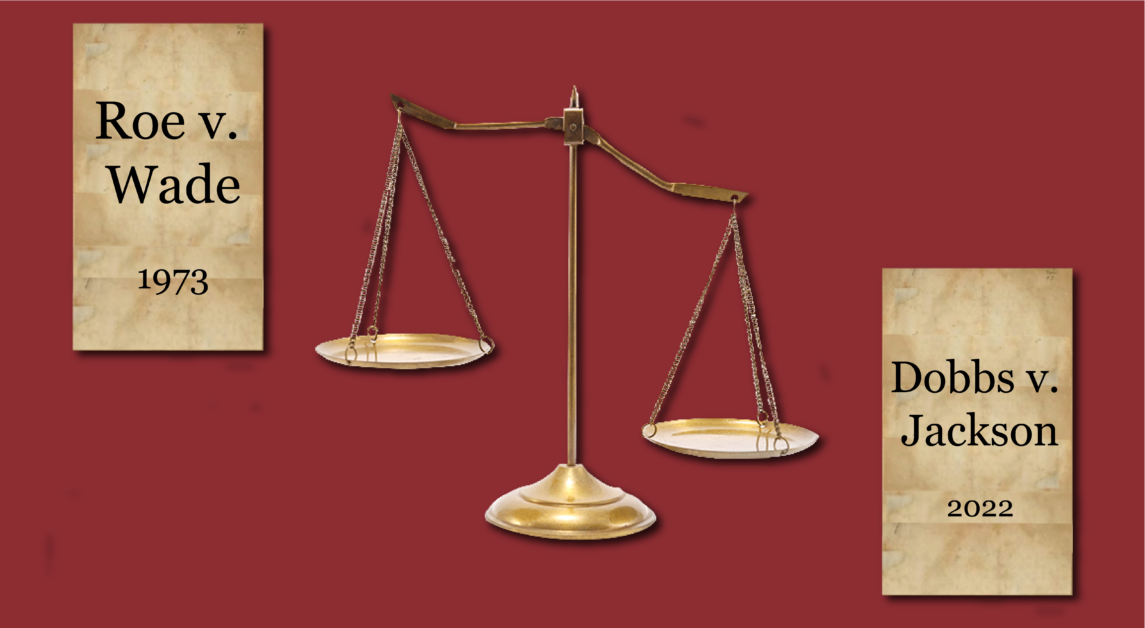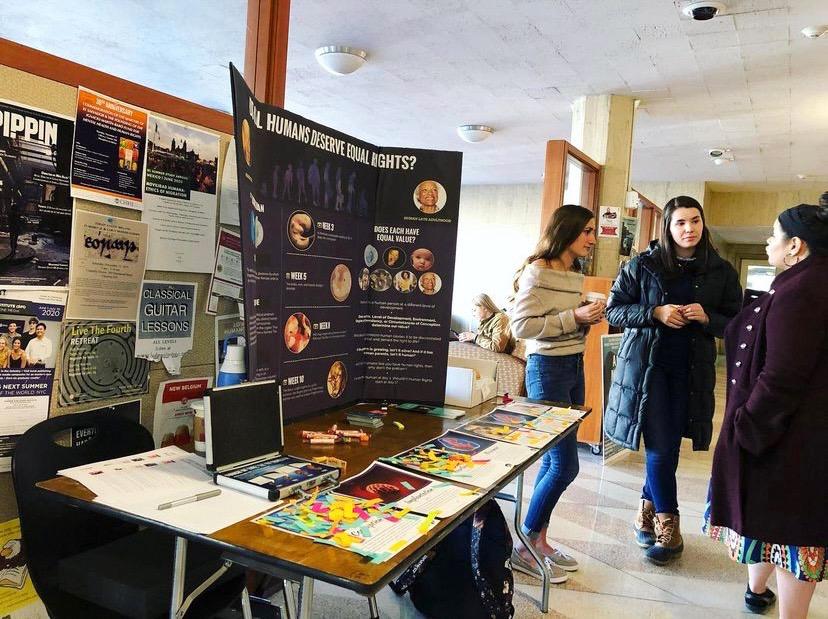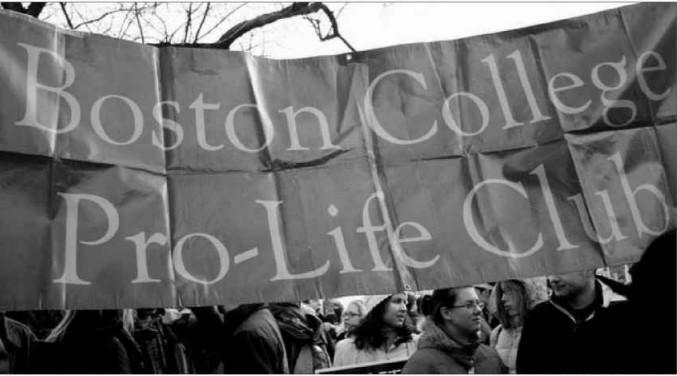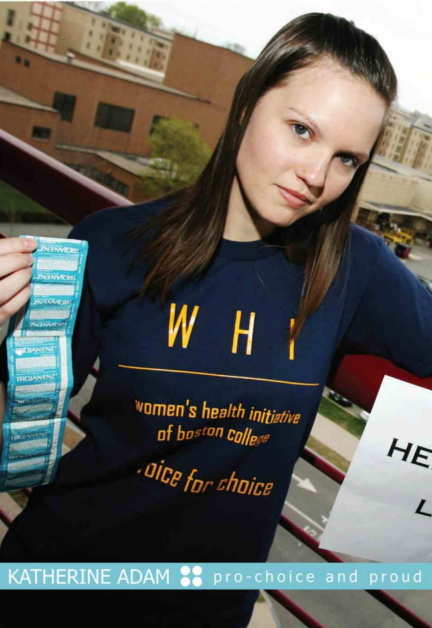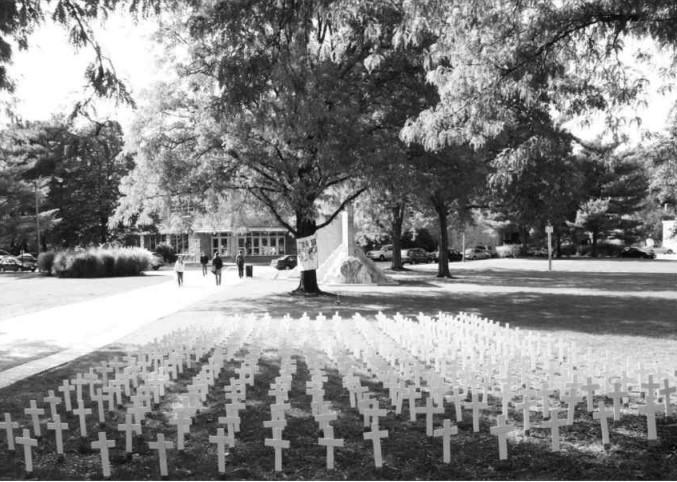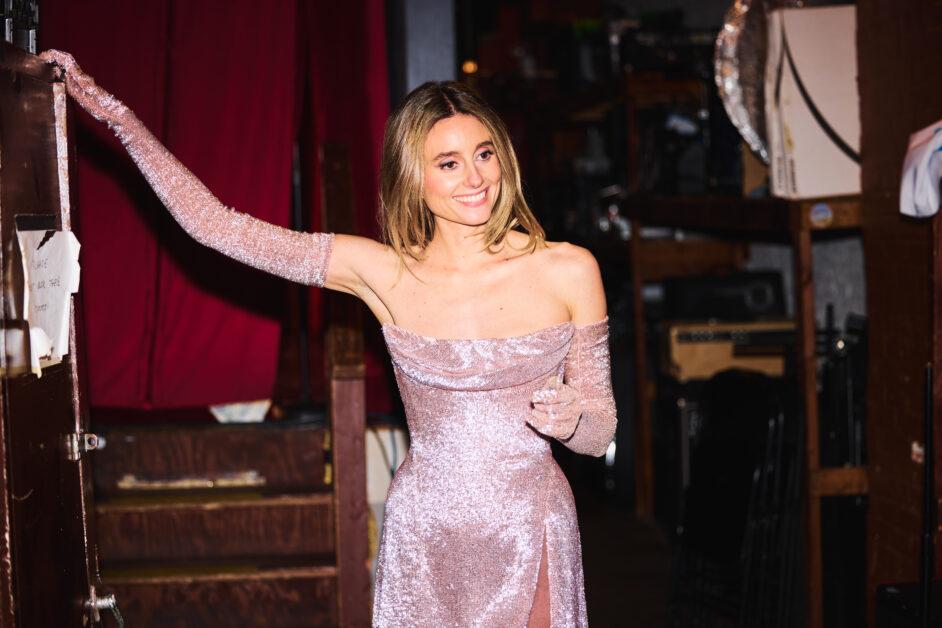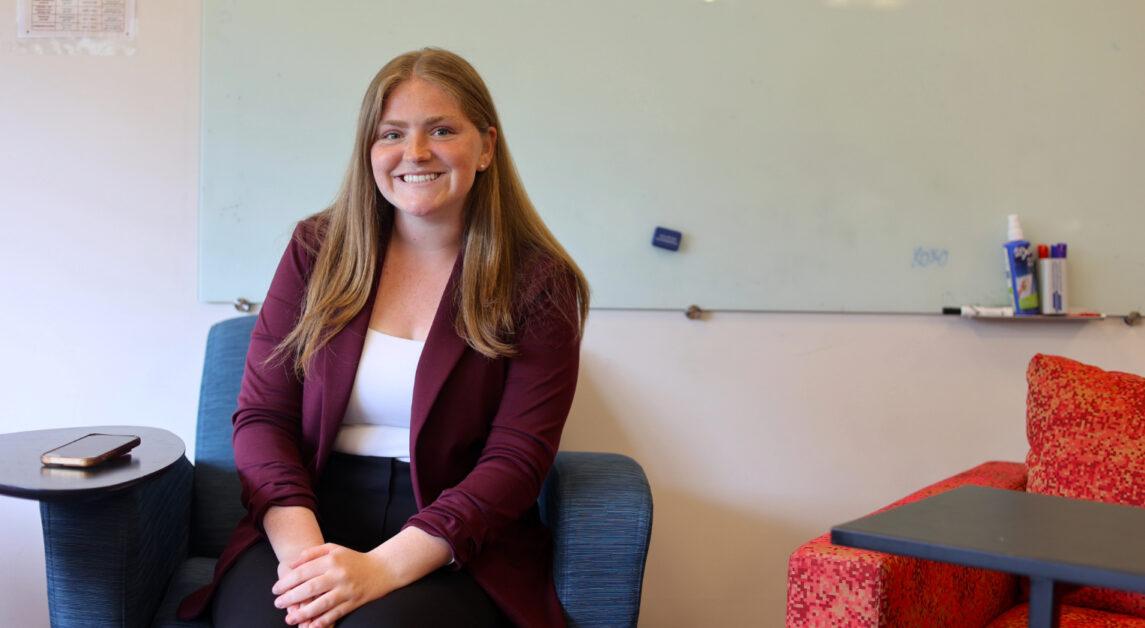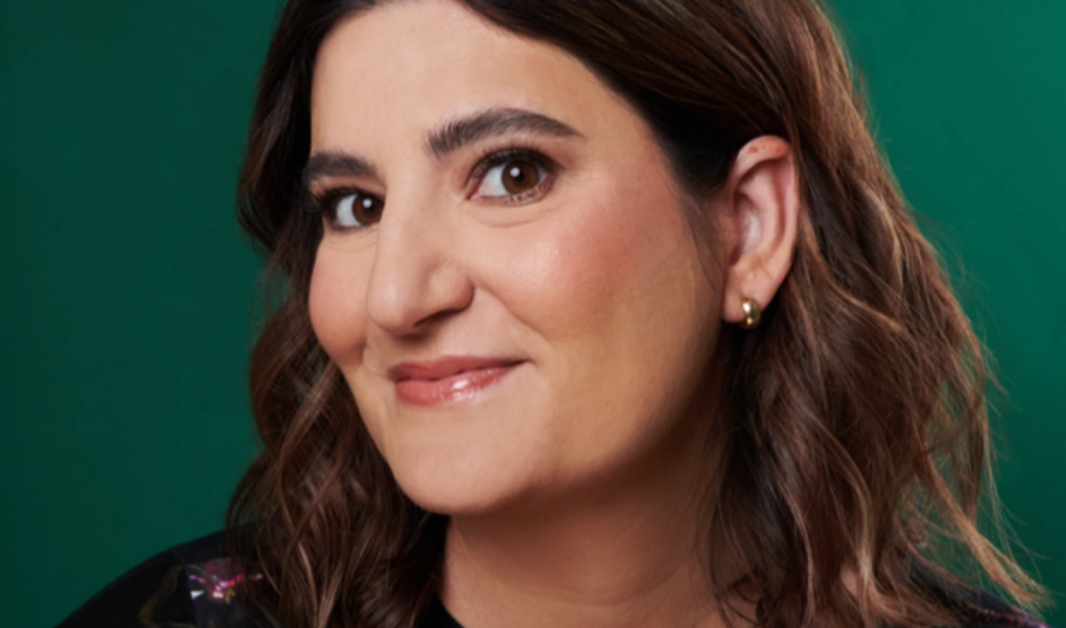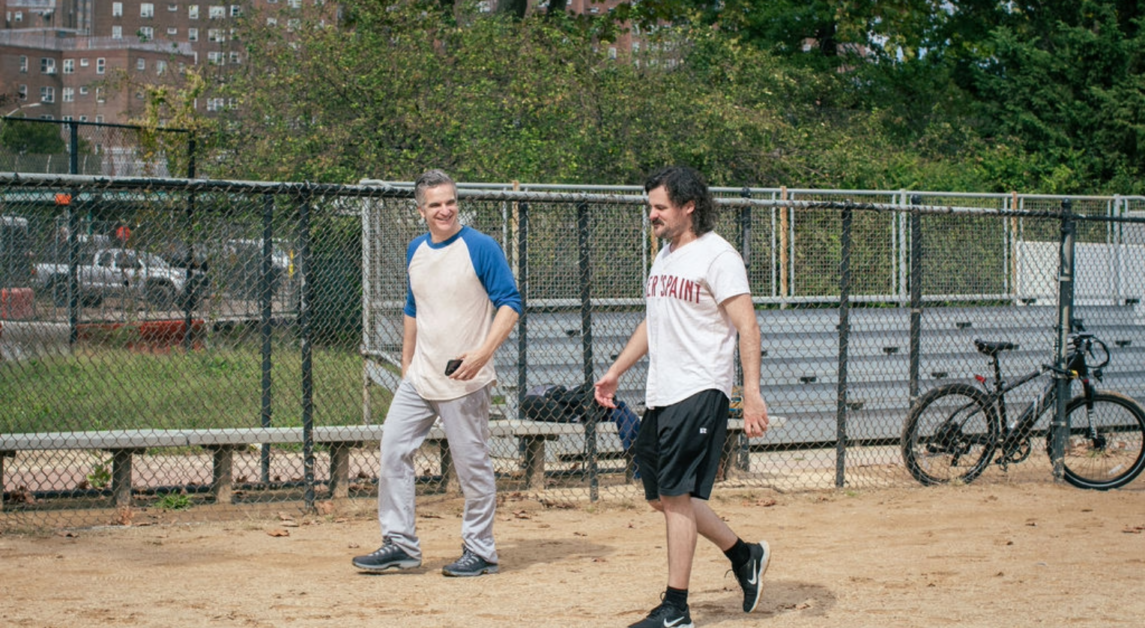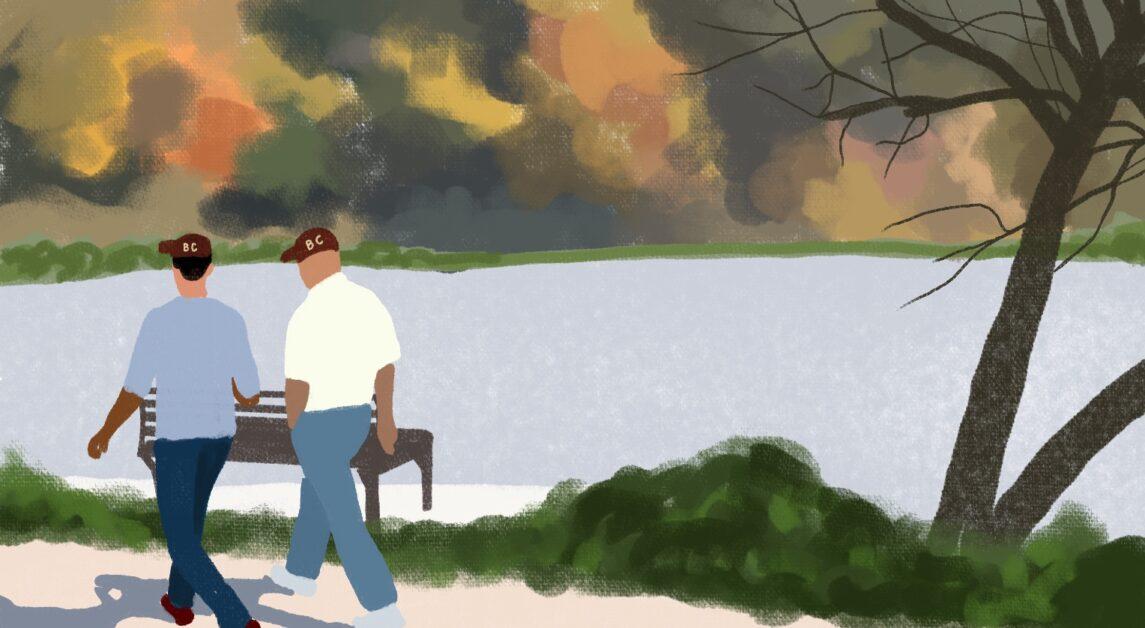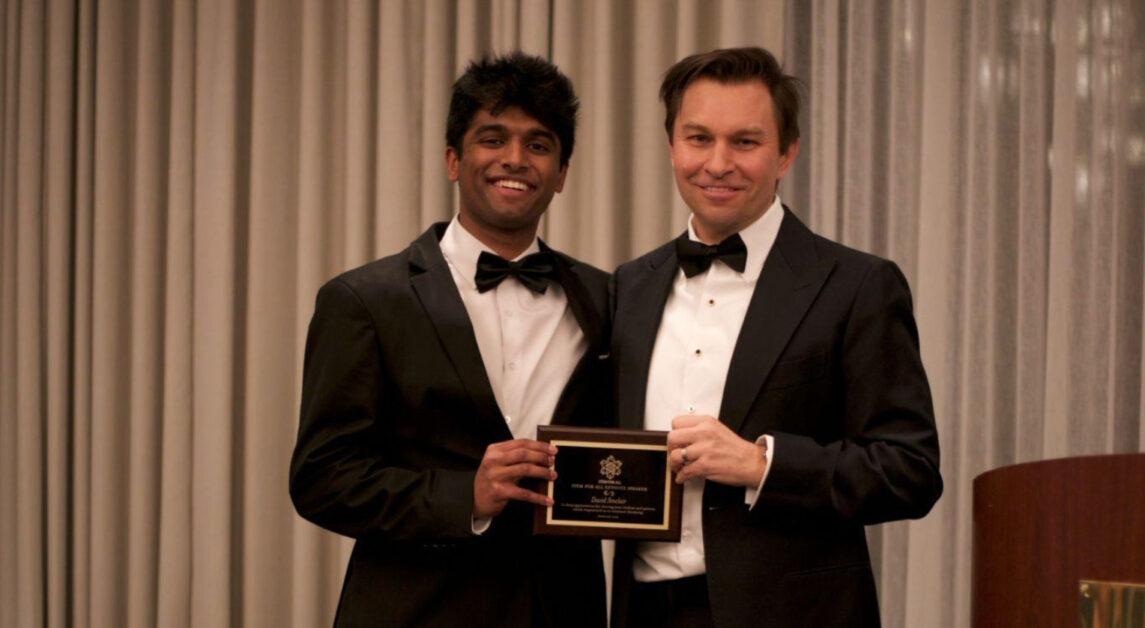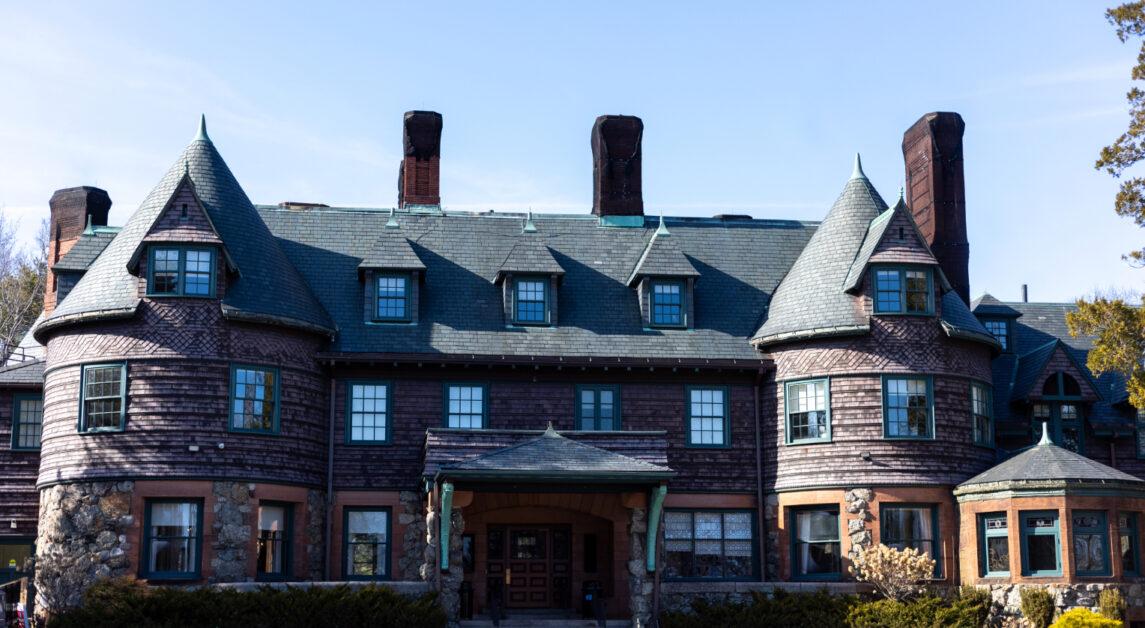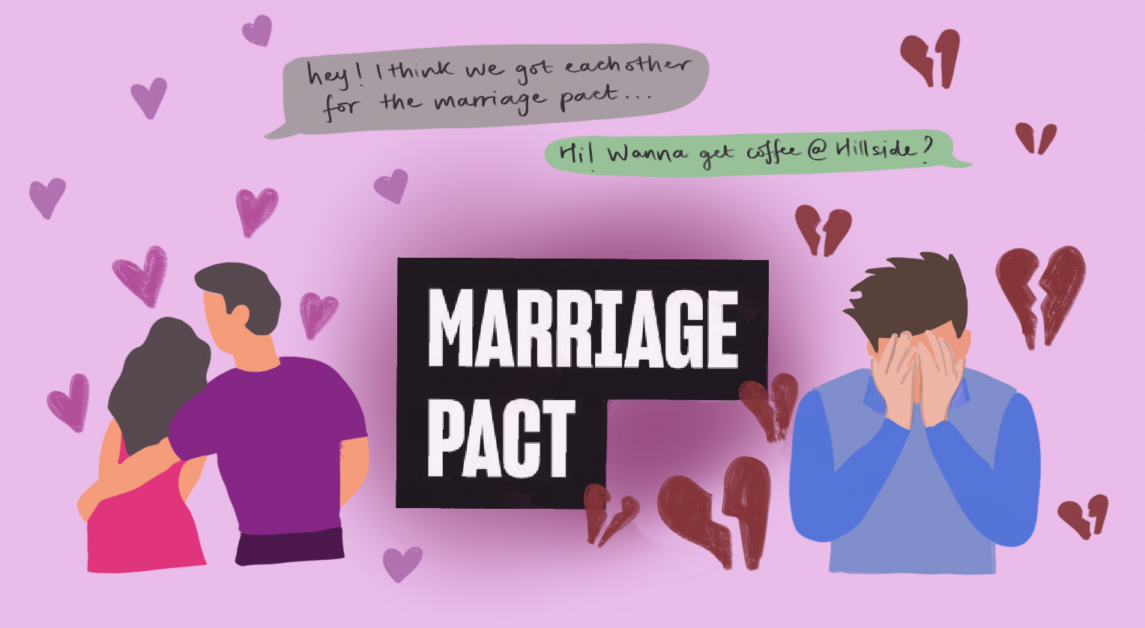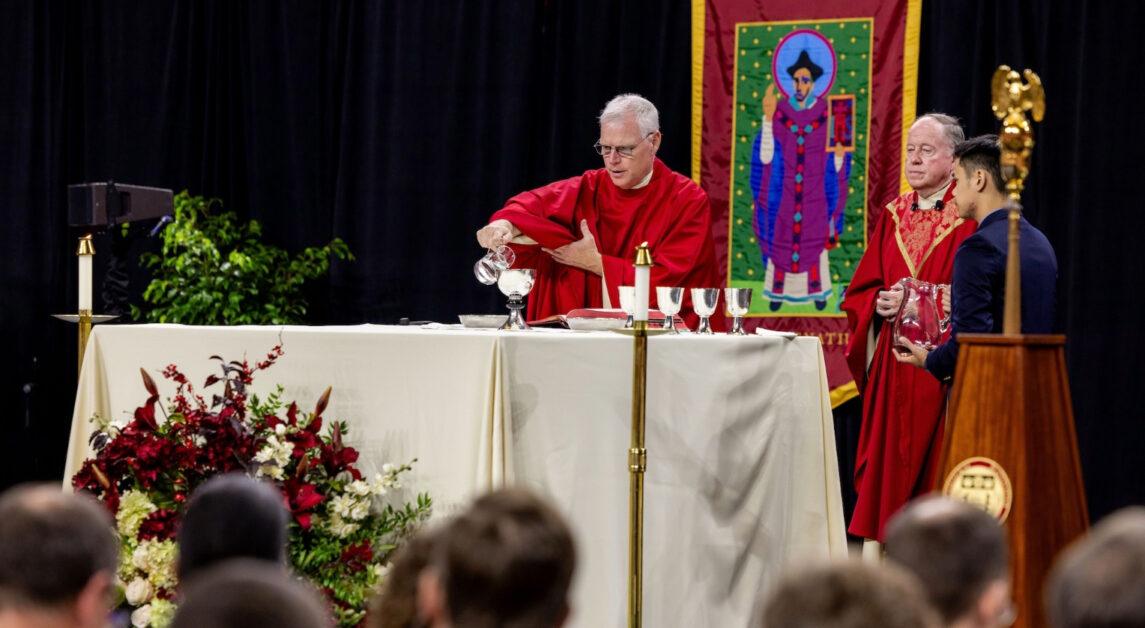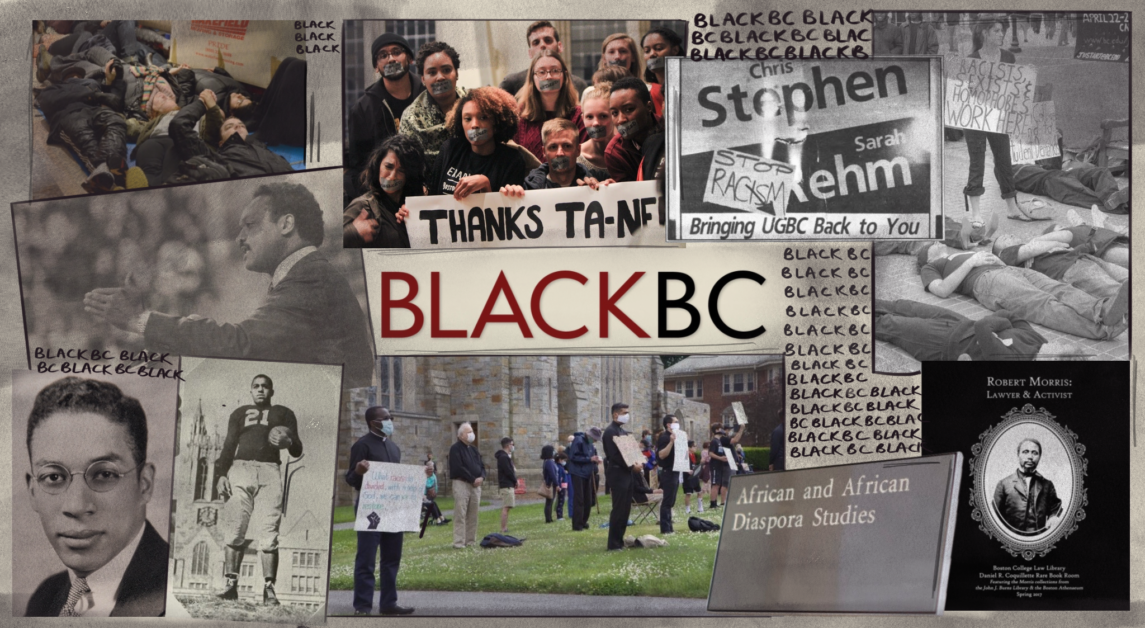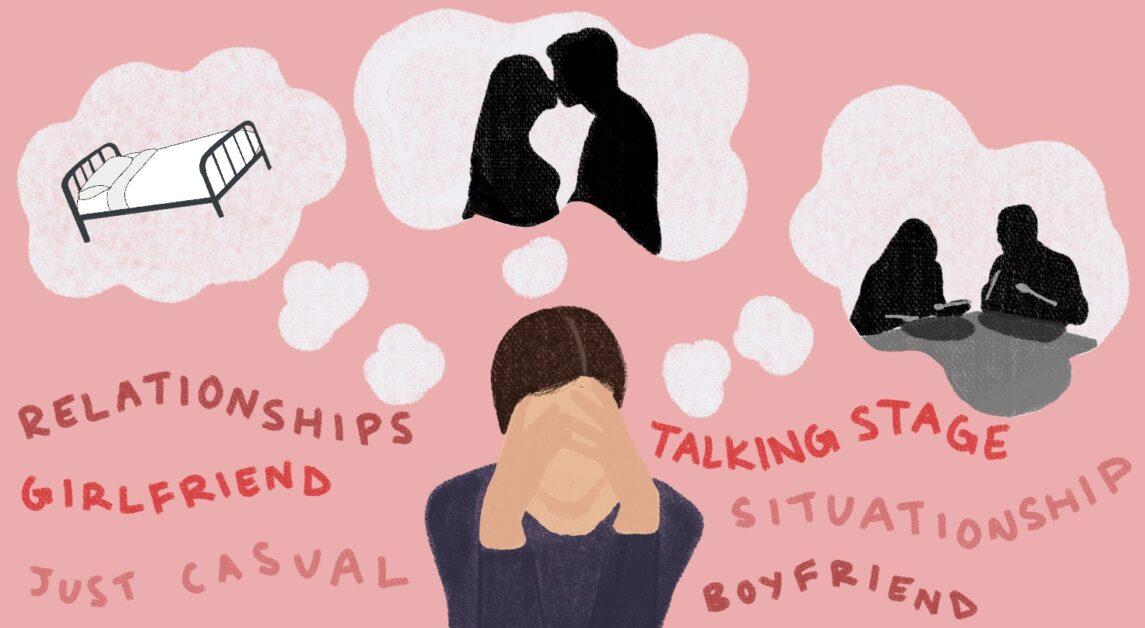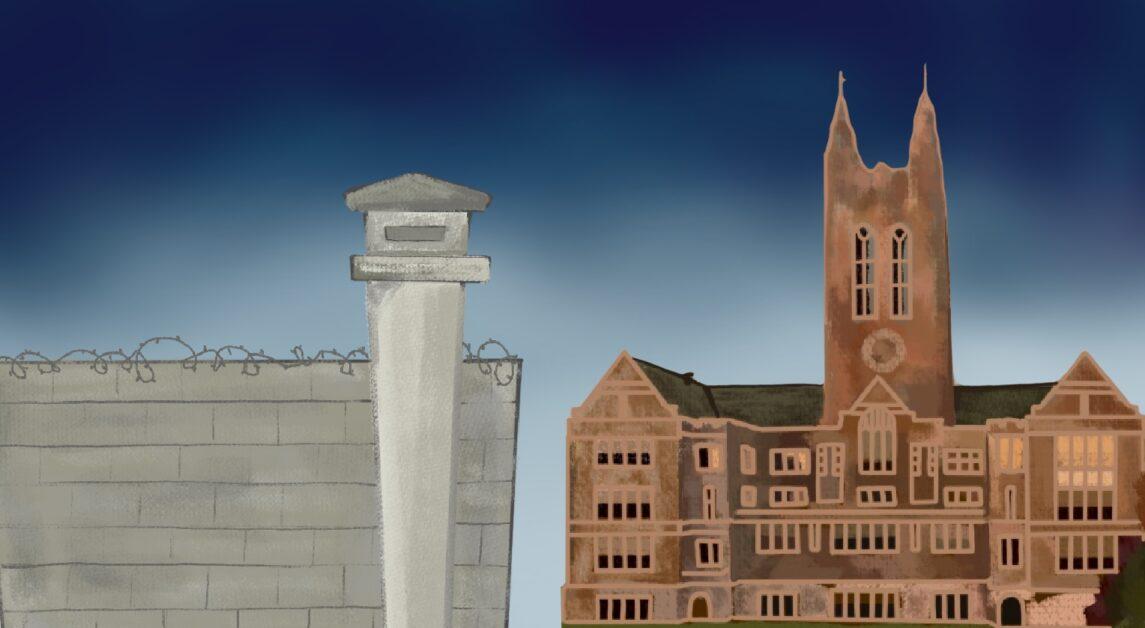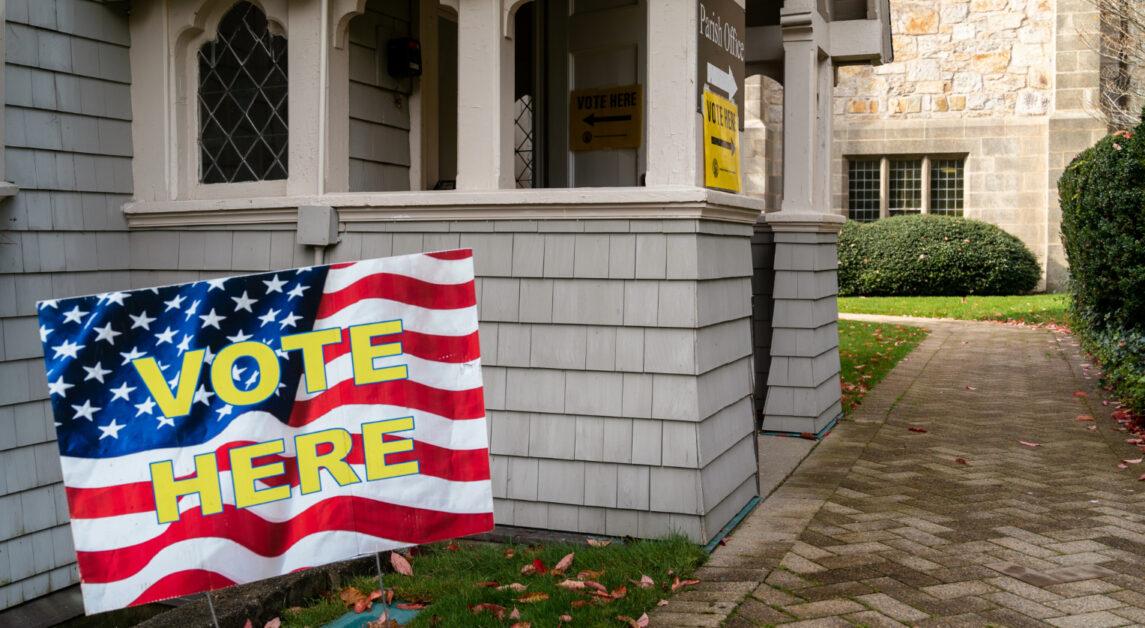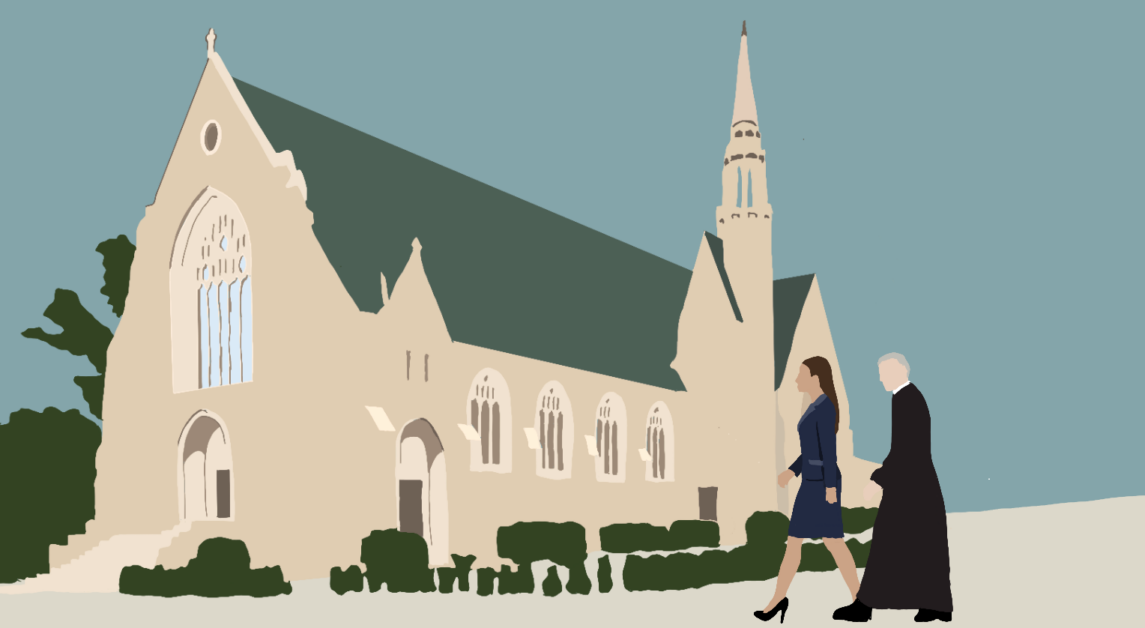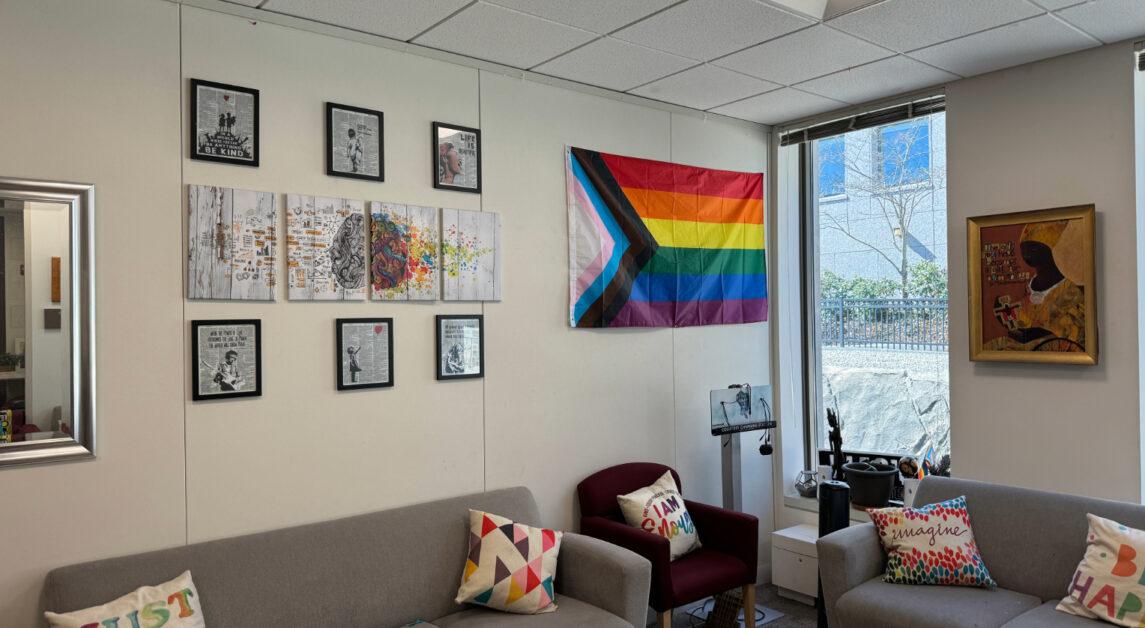Max Montana said he was with a number of friends when he saw on TV that the U.S Supreme Court had overturned Roe v. Wade.
His initial reaction was excitement.
“One of my friends hugged me,” Montana, co-president of Students For Life of Boston College and MCAS ’23, said. “It was a very exciting moment.”
Alicia Johnson, BC ’11 and national organizer and student network manager for Americans United for Separation of Church and State, said she knew the overturning of Roe v. Wade was a possibility with the makeup of the current U.S. Supreme Court.
Her initial reaction was devastation.
“To have the Supreme Court take away a constitutional right to an abortion was devastating,” Johnson said.
Across the country and at BC, both abortion-rights and anti-abortion advocates are processing the Dobbs decision, which overturned the landmark 1973 Roe v. Wade decision, establishing that the U.S. Constitution does not recognize a federal right to an abortion. Although not physically together on campus, students, alumni, and professors are grappling with what this decision means for the future of abortion in the United States.
The Reversal of Roe
In March of 2018, then-Mississippi Governor Phil Bryant signed the Gestational Age Act, which bans all abortions after 15 weeks since the first day of the last menstrual period, except in medical emergencies and in cases of severe fetal abnormality. The bill does not make exceptions for pregnancies resulting from rape or incest.
In response, The Center for Reproductive Rights—a global human rights organization of lawyers and advocates who work to protect reproductive rights—filed Dobbs v. Jackson Women’s Health Organization on behalf of the last remaining abortion clinic in Mississippi, the Jackson Women’s Health Organization, in an attempt to stop the ban.
On May 2 of this year, Politico leaked a draft of the Dobbs decision written by Justice Samuel Alito, in which the Supreme Court voted to overturn Roe.
Just over a month later, on June 24, the Supreme Court issued its official ruling on Dobbs, overturning both Roe and the subsequent 1992 Planned Parenthood v. Casey decision, which upheld Constitutional protections of abortion, establishing the “undue burden” standard as a framework for future litigation.
The Supreme Court’s decision ended federal protection of access to abortion nearly 50 years after the Roe decision, handing the issue back to state governments.
Since the Dobbs decision, at least 10 states at the time of publication have banned abortion and about half of the states are expected to allow bans or limits on abortion to take effect, according to The New York Times.
Student Groups React
Many political organizations on BC’s campus have expressed their reactions to the Dobbs decision, with some, like College Democrats of Boston College, holding meetings to discuss and process the news. College Democrats of BC said they were saddened but not surprised by the overturning of Roe.
“In our meetings, we’ve discussed what a post-Roe America could look like, and it’s strange for all of us to now be living in it,” said College Democrats of BC President Anna Flaherty, MCAS ’23, in a statement to The Heights.
Moving forward, the club plans to encourage political involvement within the student body through voter registration and volunteer efforts.
“Obviously, we’re limited in our abilities to work directly with pro-choice organizations because of BC’s Jesuit values, but that will not stop our club from doing everything we can to make an impact,” Flaherty wrote. “Our next semester on campus will be heavily focused on getting students involved politically, whether it be by registering to vote or volunteering, and providing a space for students to process and problem solve in the wake of this attack on human rights.”
Both BC Republicans and the Network of Enlightened Women (NeW), did not respond to a request for comment.
Montana said that prior to the overturning of Roe, Students For Life of BC worked to advocate for the anti-abortion movement and facilitated conversations about abortion on campus. One way in which the club creates spaces for these conversations is by tabling three times per semester, he said.
“I’ve had many conversations with my peers at Boston College,” Montana said. “We want to create an environment, foster an environment where people can have honest but charitable conversations about the issue of abortion.”
Besides tabling, Montana said the club also hosts speakers on the topic of abortion and provides pregnancy and parenting resource pamphlets, which can also be found on the Campus Ministry website.
Montana said when people on campus are willing to listen and engage in conversation, people begin to better understand the anti-abortion movement.
“We understand each other better and have thought-provoking exchanges that, again, are very much in charity and with compassion,” Montana said. “There’s no yelling or anything like that.”
Besides tabling and providing resources for pregnant students, Montana said that the club can always do more to provide additional resources for students and advocate for the anti-abortion cause.
“We can always provide more resources, and part of our mission is advocacy, so talking to the administration about what they could do better, what they can do more for us,” he said. “On the whole, BC does a pretty good job at letting us promote our viewpoint.”
To further conversations about reproductive justice without attachment to a specific religious or political movement, Ruby Miller and Sophie Lowy, both MCAS ’25, are trying to start a new reproductive justice club.
According to Miller and Lowy, who met in an Introduction to Feminisms class during the fall semester of their freshman year, the course inspired them to create a space dedicated to reproductive health care education.
“We were kind of really inspired by the content of the class and thinking, you know, ‘Why isn’t there something like this on campus [where] students can kind of join this community and talk about their interests involving reproductive justice?’” Miller said.
Miller and Lowy said they named their club The Scorpio Project, symbolizing the scorpio constellation which is associated with reproductive organs in the Zodiac. They received a recommendation from the Board of Student Organizations during the 2022 spring semester. In the fall, OSI will review their club application.
Miller and Lowy said they have worked with mentors within the BC community to navigate the application process, in an effort to ensure their club is approved. .
“Ruby, and I, you know, have done our research in the past about this, and we were super lucky to have a really strong group of mentors on campus that were also advisors who really helped us navigate kind of the touchy subjects for the club process,” Lowy said. “We knew going into it that if we bring any sort of controversial nature or any sort of biases, we were going to get shut down pretty much immediately because that’s what happened in the past. So, when we did our presentation, we were like, ‘For a disclaimer, we do not associate with any sort of religious or political bias [or] beliefs going into this.’”
According to Miller, since approved clubs can only begin holding meetings a year from when they registered, the Scorpio Project hopes to start meeting in the spring of 2023.
If they are approved, Miller said they plan to hold weekly meetings, alternating between two meeting types—presentations on relevant topics, such as historical disparities in reproductive health care, and discussions where members can share their reactions to the presented topics and how it impacts them.
“As things change in our country’s political sphere, this isn’t a political club, but it is a space to talk about how things are affecting us and kind of share how people are feeling,” Miller said.
Julia Spagnola, UGBC vice president and MCAS ’23, said that she experiences a complicated mix of emotions regarding the recent Dobbs decision. Spagnola said that as a woman, she feels a sense of fear and exhaustion but recognizes that the privilege of her background shelters her from facing the full repercussions of the overturning of Roe.
“There are protections that come with having a zip code in a location like New York and attending college in a state like Massachusetts,” Spagnola wrote in a statement to The Heights. “This present moment does not confront us all equally, and the implications of Roe weigh on some of us to a greater degree than others.”
Similarly, Lubens Benjamin, UGBC president and CSOM ’23, said that as a student and an activist, it his duty to bring disempowered voices affected by the Dobbs decision to the forefront.
“I feel the shame in the disbelief that we find ourselves in this uncharted territory,” Benjamin wrote in a statement to The Heights. “Yet it is not uncharted in the way, once again, BIPOC, low income, and/or disabled people with uteruses have been disempowered. As an activist—as a human—I believe it our duty as leaders of tomorrow to find those on the margins and bring them to the forefront. This decision has only push[ed] them even farther back in our patriarchal society.”
The University has yet to make a statement regarding the recent Dobbs decision. According to the pregnancy resources page on the Campus Ministry website, BC—as a Jesuit Catholic university—supports life and is committed to providing resources for both pregnant students and their child.
The Roe Ruling: Initial Impacts and Implications
The 1970s marked a series of social changes. At the time, according to Ken Kersch, a professor of political science, the women’s movement was at its height—feminist advocates had secured two landmark victories within a year of one another, strengthening protections against gender discrimination and ensuring access to abortion nationwide.
On June 23, 1972, then-President Richard Nixon passed Title IX of the Education Amendments of 1972, which prohibits discrimination based on sex within educational programs or activities that receive federal funding.
Just over six months later, on Jan. 22, 1973, the Supreme Court decided Roe, ruling that abortion is protected by the constitutional right to privacy from the due process clause of the 14th and the 5th amendments, according to Kersch.
Kersch said at the time Roe was decided, the issue of abortion was not a partisan political issue and that both Republicans and Democrats supported and opposed abortion rights.
“The most relevant way the political parties worked at the time was that there were liberal and conservative wings almost equally balanced in both parties,” Kersch said. “So the abortion issue, so however it was debated, it did not play out in partisan terms, it played out in traditionalists versus liberals within each party.”
Kersch said that it was only after Roe was decided that a strong anti-abortion movement emerged and quickly aligned itself with the conservative movement within the Republican Party. As this movement grew, Kersch said that the Democratic Party ultimately became the abortion-rights party in response.
“Ultimately, that filters into Supreme Court nominations and confirmation hearings, and becomes more and more and more important as one of the pillar issues of each of the parties, and then you start to get activists who have a long game where they’re going to try to appoint justices that would overrule Roe and make it part of the Republican program and promise to do that,” Kersch said.
As debates regarding abortion rights became more prominent in political discussions across the country, these conversations made their way onto BC’s campus.
Kay Schlozman, the J. Joseph Moakley Endowed Professor of Political Science, said she teaches a unit on abortion every year in her Gender and Politics class. Schlozman said she starts the unit by giving students an anonymous questionnaire, asking a standard opinion question about how they feel about abortion. The questionnaire also asks students where they think the rest of the class stands on the issue of abortion and if they know anybody who has had an abortion.
Although Schlozman emphasized the her class’ gender demographic is typically female undergraduate political science majors and therefore can not be representative of the BC student body as a whole, she said the class at large always leans in the abortion-rights direction.
“There really hasn’t been much change over time, you know, since I’ve been doing this since the late 1970s,” she said. “The class will lean in a pro-choice direction, and there will be a range of opinions.”
Schlozman has also found that the class will often underestimate the extent to which it leans in the abortion-rights direction, with students expecting there to be more anti-abortion classmates than there are in reality.
She also said that she has taught the same class at Harvard University and given the same questionnaire and found that BC students are more likely to know somebody who has had an abortion than Harvard students.
Though Schlozman’s class does not shy away from talking openly about abortion, she said that she has always found students to be respectful of each other’s opinions regarding the issue.
“The conversations about abortion in my class have been uniformly extremely respectful,” she said. “People understand that there are people of goodwill who take positions different from them.”
The conversation about abortion continued to take place outside the classroom in the late 20th century, as both abortion-rights and anti-abortion students expressed their views across campus.
Chris Kaczor, BC ’92, was involved with Students For Life of BC when he was a student at BC. Kazcor said that during his time on campus, the anti-abortion movement was not a very popular cause, and while some professors were supportive, many students were not thrilled with anti-abortion advocacy.
“It seemed that there was not a great deal of openness towards more traditional views, and it was not highlighted and celebrated and put forward in a positive way,” Kaczor said. “Free speech was allowed, of course, and it wasn’t like, you know, you get expelled from the University if you write a pro-life article or something. … I guess you could think … about it as a kind of pressure, a social pressure to have certain views.”
Although Kazcor was involved with Students for Life of BC, he said that most of the conversations he had regarding abortion were with his best friend who supported abortion rights.
“The other good thing about it is that he was my best friend,” Kaczor said. “It wasn’t a conversation that was steeped in hatred or vilification of the other person, but rather … a conversation that was, you know, between good friends that were really trying to understand why this other person held the view that they held and to explore the issue.”
During his senior year, Kaczor said that he got his then-girlfriend pregnant, which at the time was a huge crisis for him and challenged his beliefs, but ultimately reaffirmed his anti-abortion beliefs. In 2015, Kaczor published an article about his experience with unplanned pregnancy titled “The Myth of Vampire Children.”
In the article, Kaczor wrote, “Having a child is the most wonderful experience you will probably ever have. Children are not vampires. They are lovable, exasperating, insanely cute gifts. They don’t drain parents of their life force—they enhance it.”
Kaczor, who is the chair of the philosophy department at Loyola Marymount University in Los Angeles, Calif., continues to be involved in the anti-abortion movement, writing books on the ethics of abortion. He said he is currently working on a third edition of his book titled The Ethics of Abortion, Women’s Rights, and the Question of Justice and has also co-authored a debate book titled Abortions Rights: For and Against.
Catholic Values and Condoms: The Abortion Debate in the 21st Century
After the turn of the century, abortion-rights activists at BC began to innovate different ways to organize. Katherine Adam, BC ’07, was one of the co-founders of BC Women’s Health Initiative (WHI), an unsanctioned group which started hosting clandestine meetings in 2005.
“We started the WHI during the Bush administration, which I think is important context because we were seeing many efforts on the national level to curtail women’s reproductive rights, including the appointment of Samuel Alito to the Supreme Court,” Adam said. “So many of us felt urgency to protect these rights in our own community, which for us, as students, was the college campus.”
When reflecting on the attitude she and the other founders of WHI had at the time of Alito’s appointment, she said they were organizing because they were fearful of Roe being overturned then.
“It’s distressing to see the through line between the decisions that were made during that time in that presidential administration to where we are now, and I think [it] reinforces the urgency to protect these kinds of rights in all spaces where we can,” Adam said.
When WHI attempted to host a discussion panel on women’s rights in light of Alito’s appointment to the court, the event was originally canceled, as the University stated they could not sponsor events as an unrecognized group, according to a 2006 Heights article.
The panel was still able to happen, however, since the sociology department stepped in to sponsor the event. After the panel, according to the 2006 Heights article, the speaker policy in the Student Guide was revised to clarify the University’s stance on events against University values.
“An essential element in the Jesuit tradition is an emphasis on the search for truth in an academic community,” the revised policy stated. “Since the search for truth demands freedom of inquiry, the free exchange of ideas is a principal value of the University. Such freedom of inquiry is, however, not absolute and must be balanced by the University’s obligation to adhere to the principals and values inherent in Boston College’s identity as a Catholic and Jesuit institution.”
This new policy meant an abortion-rights speaker would have to be countered by an anti-abortion speaker to properly balance campus discussions, according to the article. Despite this setback to WHI, Adam said she saw the University’s reaction as a testament to the impact of the group’s events.
“BC only changed the speaker policy this year … because activists were getting really good at reading the speaker policy carefully and putting on events by the book, but the way they wanted to do it. We actually forced BC to change the rules,” Adam said in a 2007 Heights article.
In 2009, another unsanctioned group for reproductive rights formed at BC, this time called BC Students for Sexual Health (BCSSH). Johnson, one of the founders of the group, said they received a grant from Americans for Informed Democracy to support their advocacy efforts, which was crucial to getting the group started, as they were not receiving University support.
“They were not interested in allowing space or platforms at all for people who support abortion rights,” Johnson said. “You weren’t allowed to use University space or funding for pro–abortion rights events, you know, so everything that we did in that regard was sort of unofficial.”
Abigail Ulbrich, BC ’11, was the president of Students For Life of BC during both her sophomore and junior year and the co-president of the club her senior year, she said. While leading Students For Life, Ulbrich said that the club hosted various University-sanctioned events, including Respect Life Week.
“A lot of what we tried to do was just to bring awareness to the humanity of the child in the womb and the reality of the gruesome procedure that is abortion and what it does to the child in the womb and just tried to really be a positive influence to say, ‘College-age women, you don’t have to make this choice,’” Ulbrich said.
Some other events held by Students For Life during Ulbrich’s time as president included hosting speakers, hanging up posters of fetuses in early ages of development, placing crosses outside of McElory Commons to represent the number of abortions in the United States, and setting up an information table where, if desired, students could view images of an abortion and an aborted child.
“We show pictures of the reality of the horrors of the Holocaust to make sure that we never let these atrocities happen again, so sometimes it’s good to see these hard pictures so that we’re made aware,” Ulbrich said.
Despite attempting to remain positive while advocating for anti-abortion rights, Ulbrich said that the club was often met with defensiveness from students who supported abortions rights.
“We tried to be really positive, but no matter how positive we were, there were always people that didn’t like the message and got very defensive,” she said. “Every time we put fliers up … people would always be tearing down our flyers, even if it was just advertising for an event or a talk.”
Through BCSSH, Johnson said she organized counter protests to the Students For Life’s Respect Life Week and also worked to distribute condoms, lubricant, and information about sexual health to students on College Road. The organization, however, encountered several obstacles, including University officials claiming the corner of College Road was University property that BCSSH could not table from, Johnson said.
“We went to the City of Newton and really asserted our rights to be able to speak and distribute resources on what was public property,” Johnson said.
Today, BCSSH works with Planned Parenthood to provide resources to BC students by tabling on CoRo just as they did a decade ago. Hollie Watts, BC ’21, was an officer within BCSSH during her time at BC. Watts said the organization focused on sexual health and on contraception rather than the abortion debate.
In spring semester of 2019, Watts was made aware of a Students for Life of BC club–sponsored event titled Lies Feminists Tell with Kristan Hawkins—the president of Students for Life of America. Watts said she encouraged students to attend the event and voice their disagreements.
“It was never affiliated with any club, and that was deliberate,” Watts said. “If you want to organize a protest, it is better to do it through people because then it’s the people and not the club that gets harmed. People leave, people graduate—clubs don’t and then that affects everyone.”
Then, Watts received an email from then-Dean of Students and current Interim Associate Dean of the Morrissey College of Arts and Sciences Tom Mogan referring her to the student code of conduct and requesting to meet with her.
Mogan directed The Heights to the student code of conduct, which outlines the guidelines and approval process for registering a protest as well as the potential conduct action that can be taken against individuals that participate in unsanctioned protests.
Watts said she met with Mogan in his office and explained it was not an official protest. Mogan subsequently implemented crowd control by requiring tickets to enter the event, according to a 2019 Heights article.
Watts said the University cannot have a meaningful debate on abortion because of its stance on sex overall, referencing BC’s code of conduct, which states that because BC is a Jesuit, Catholic institution, incidents of sexual intercourse outside the bonds of matrimony may be referred to the Student Conduct System.
“It comes down to, fundamentally: Are you an educational institution that cares for your students or do you want to be a religious institution?” Watts said.
The Future of Abortion after Dobbs
The implications of the Dobbs decision go far beyond regulating abortion, according to Kersch, who said the effect of the ruling will be much larger than many people anticipate.
“Well now doctors won’t perform in vitro fertilization or they’re going to be threatened with criminal prosecution,” Kersch said. “I just think that there’s so many both legal and factual dimensions to this that have been blindly disregarded that are going to be the subject of fights and litigation.”
Kersch also said anti-abortion activists will continue to work for a national abortion ban, so this issue is far from being settled legally.
“If you elect a Republican president [and] Congress, you can get legislation that bans it nationally,” Kersch said. “If the Supreme Court decides that there’s a constitutional right, that the fetus is a person with constitutional rights, the Supreme Court could ban it nationally tomorrow.”
Even though Roe has been overturned, some anti-abortion advocates still feel there is work to still be done. Ulbrich said she and her family continue to donate to their local Women’s Care Center and support pregnant people and their families.
“I very firmly believe, and it’s something the mainstream media glosses over … that the pro-life movement is extremely active in assisting mothers in whatever they need to have their children,” she said. “Just really putting boots to the ground as far as positive pro-life work.”
Montana said Students For Life of BC will continue to advocate for the unborn, for pregnant people, and for parents on campus in the fall semester through tabling, handing out pregnancy and parenting resource pamphlets, and hosting speakers.
“Just doing work on campus is very exciting,” Montana said. “And then up until the future until we make abortion completely unthinkable and illegal in the country, I’ll always be working on something and giving my heart to the pro-life movement.”
In regard to implications beyond the abortion debate, in the majority opinion written by Alito, the Court said not to worry about other precedents unrelated to abortion.
“We emphasize that our decision concerns the constitutional right to abortion and no other right,” the opinion states. “Nothing in this opinion should be understood to cast doubt on precedents that do not concern abortion.”
Despite this reassurance, some reproductive rights and LGBTQ+ rights activists worry the Dobbs decision will have an impact on other cases concerning the right to privacy. In his concurring opinion, Justice Clarence Thomas said the court should now revisit cases dealing with contraception access and the right to same-sex marriage.
“In future cases, we should reconsider all of this Court’s substantive due process precedents, including Griswold, Lawrence, & Obergefell,” Thomas wrote.
Johnson said it is crucial to recognize the intersectionality of the topic of abortion rights since there are important connections between reproductive freedom and issues of LGBTQ+ rights and racial justice.
“Unfortunately, BC has a history of suppressing student activism and students’ voices on these issues in a way that has sort of suppressed students who come from underrepresented groups and who don’t have an equal voice in this institution that they live and study in,” Johnson said. “And so I think it’s important to acknowledge those intersections as well.”
Update (8/3/22, 6:55 p.m.): This article was updated to clarify then-Dean of Students and current Interim Associate Dean of the Morrissey College of Arts and Sciences Tom Mogan’s correspondence with Hollie Watts, BC ’21.
Update (8/10/22, 12:01 p.m.): This article was updated to clarify how far along The Scorpio Project is in the club approval process.

